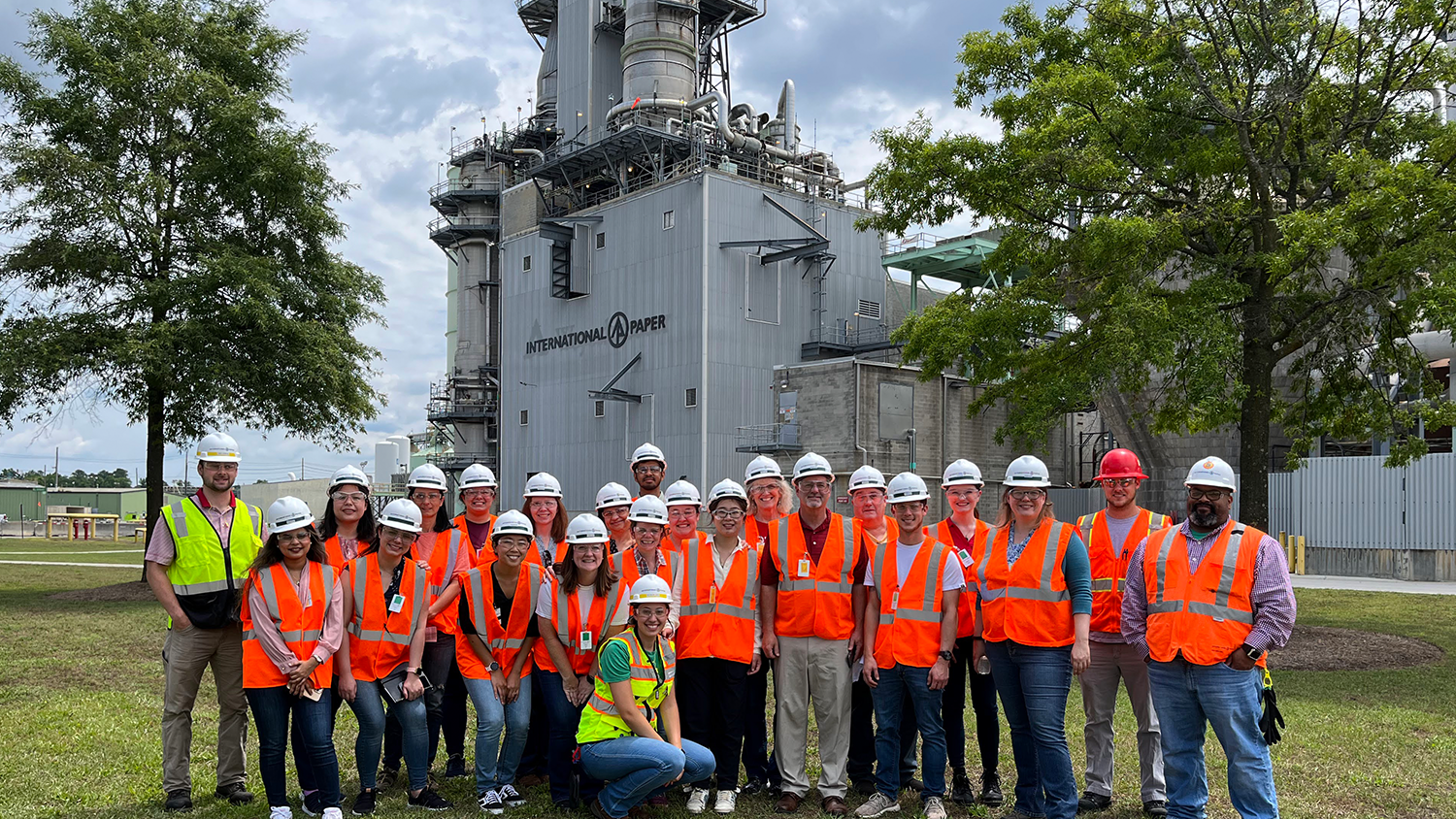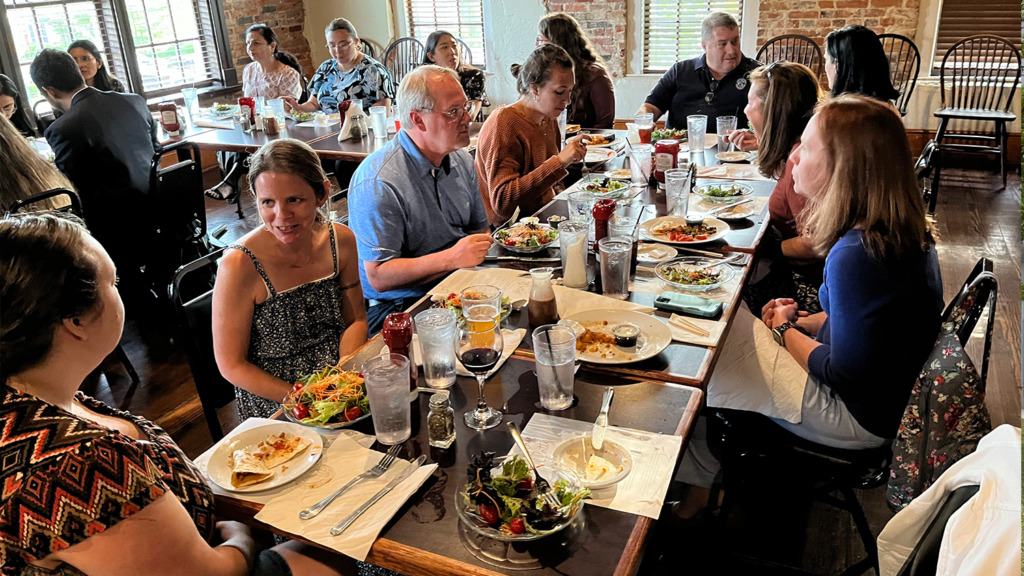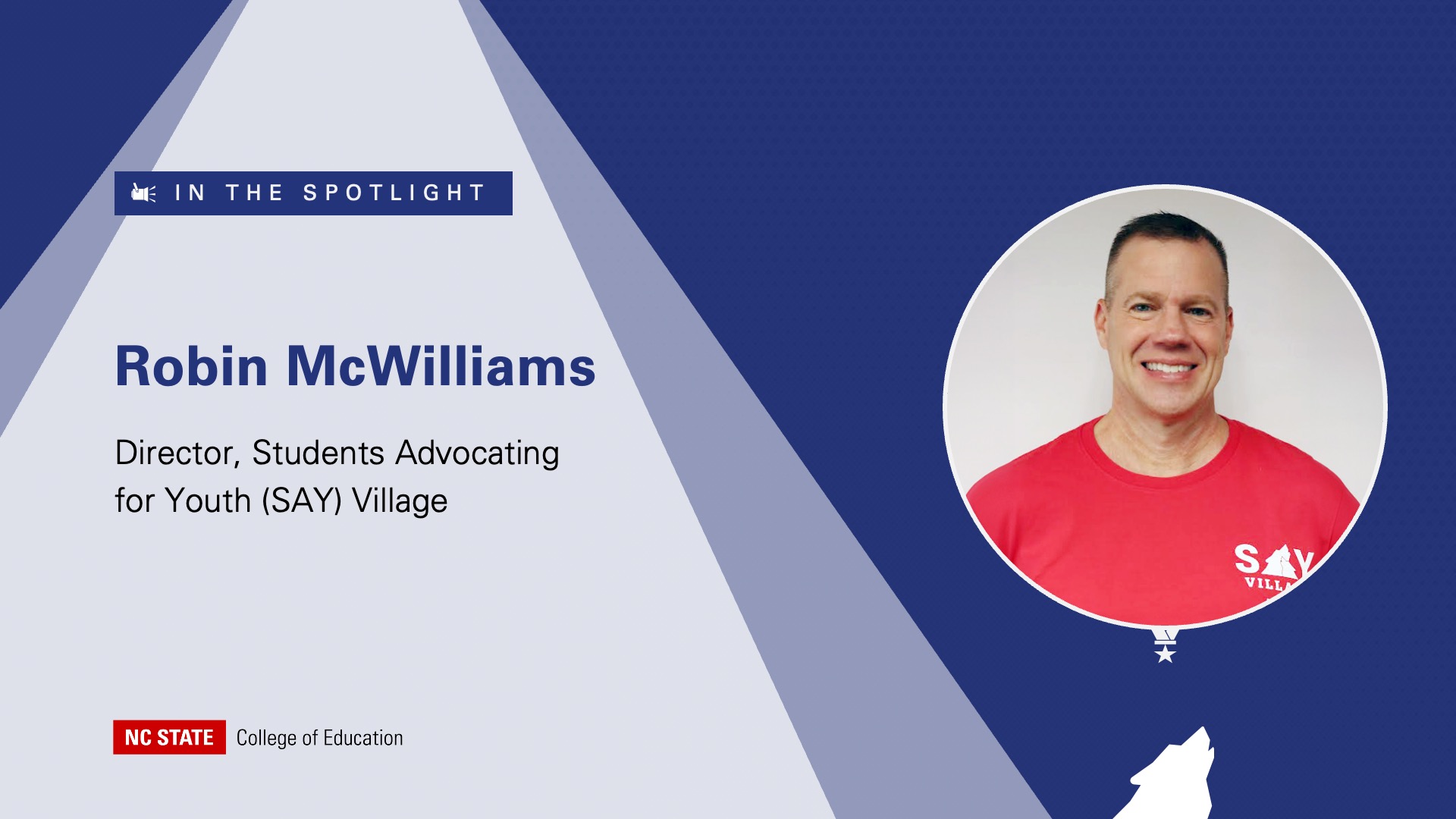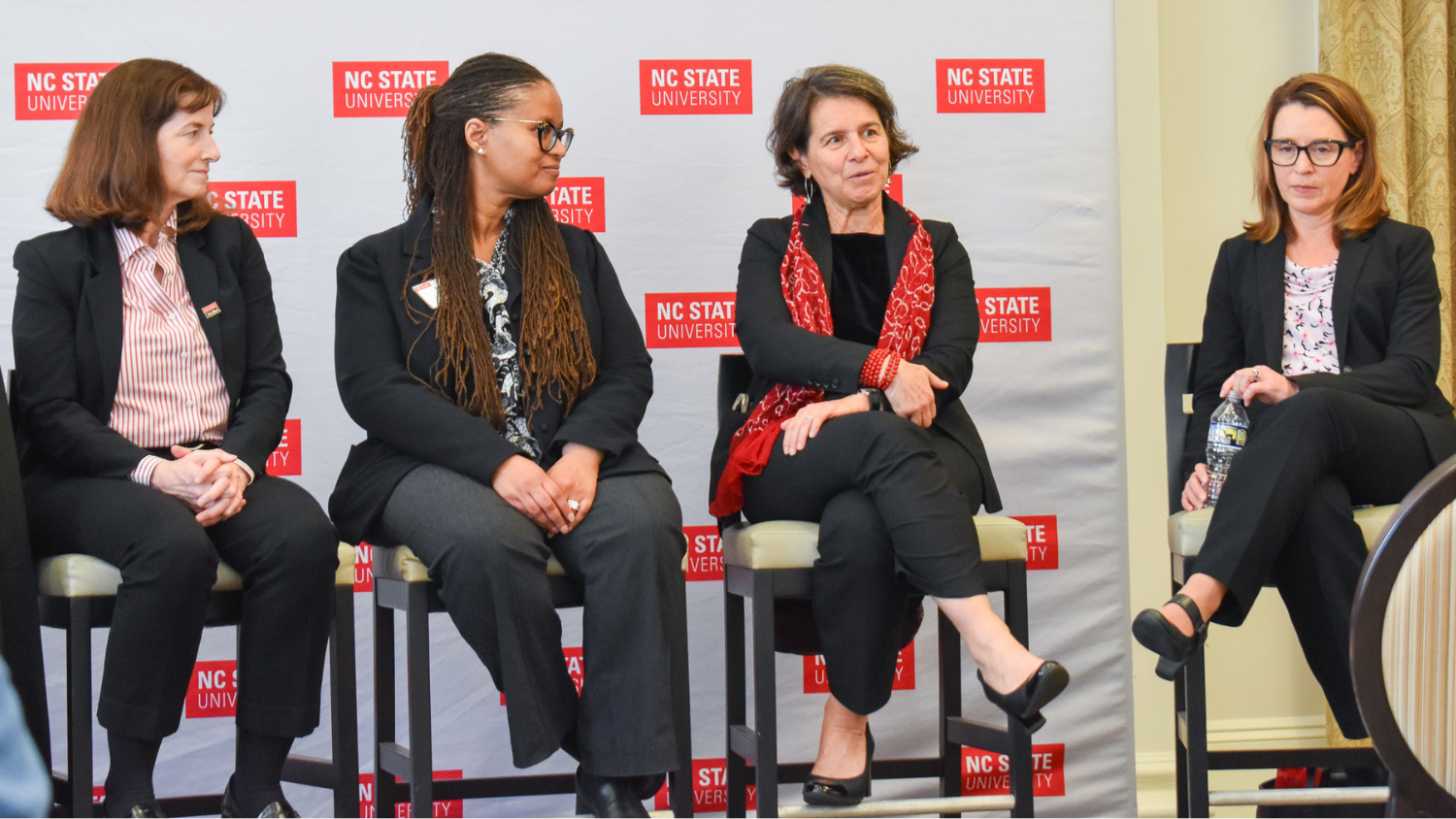Field Trip to New Bern Paper Mill with Professor Meg Blanchard Sparks Interest in Soft Biodegradable Electronics Among Teachers, Graduate Students

By Katie McCance, PhD
Postdoctoral Fellow, Sustainable Bioproducts/Bioenergy Program
Department of STEM Education
High school science teachers and researchers from NC State University and the University of North Carolina at Chapel Hill had an opportunity to gain firsthand experience with bio-based electronics during a field trip connected to two grant-funded projects involving NC State College of Education Professor and University Faculty Scholar Meg Blanchard.
Seven science teachers, along with 11 faculty, staff and students from both institutions, were invited to tour International Paper’s Mill in New Bern, North Carolina, on June 11 while graduate students had an opportunity to deliver presentations at a dinner banquet the night before.
The event was hosted in connection with the National Science Foundation-funded Eco-Manufacturing of Recyclable Soft Electronics project as well as the U.S. Department of Agriculture-funded Sustainable Bioproducts and Bioenergy Program. Blanchard is a co-principal investigator on both projects.
“This field trip was an enriching experience for all of the participants,” she said. “Neither the classroom teachers nor several of the graduate students had ever been to a pulp mill. They also had opportunities to interact throughout the two-day field trip.”
Teachers on the tour had previously learned about the papermaking process through an online course and many shared that they appreciated the chance to see the process in action and make real-life connections with their coursework.
The experience also helped them see the value in learning about specific job opportunities and career pathways that they can discuss with their students.
“Being able to talk to people at the facility will help me as an educator to inform my students about the experience,” one teacher participant said.
“I think that there are some truly innovative careers in green electronic devices and the paper mill offers jobs for all types of students with a range of academic backgrounds,” another teacher shared.

The Eco-Manufacturing of Recyclable Soft Electronics project brings together an interdisciplinary team of scientists and engineers to conduct research on soft electronics and develop solutions to address the challenge of electronic waste. In collaboration with science educators, the team will carry out a professional development program with science teachers from predominantly rural and high-poverty areas of the state.
Blanchard’s role in the project will focus on curriculum innovation. She aims to convert the ongoing research and bring career connections into high school laboratories, lessons and free online courses that will be available to the broader community, with a particular focus on high school science teachers.
Yong Zhu, a Distinguished Professor in the NC State College of Engineering’s Department of Mechanical and Aerospace Engineering, is the project’s principal investigator.
“Workforce development is a significant part of our new National Science Foundation Project,” he said. “This project is conducting truly interdisciplinary convergence research. We will use this platform to train a diverse cohort of future engineers and scientists in the emerging area of eco-manufacturing of recyclable soft electronics.”
Fifteen teachers will participate in the project, which includes an online course as well as an in-person workshop to learn about the circular bioeconomy and soft biodegradable electronics. The teachers will also implement new lessons in their high school classes with the goal of promoting students’ awareness and interest in the emerging technologies and related careers.
Several of the participating teachers are also active participants in the Sustainable Bioproducts and Bioenergy Program, the work from which will carry over into the eco-manufacturing project.
“[With this field trip] we wanted to provide the science teachers and graduate students time to discuss how electronics could be part of the circular economy and to experience, in person, a vibrant cellulosic fiber processing plant that can produce renewable raw materials in the future for electronics,” said Richard Venditti, the Elis Signe Olsson Professor in the NC State College of Natural Resources’ Department of Forest Biomaterials and principal-investigator on the Sustainable Bioproducts and Bioenergy Program. “The trip brings together our research activities in our current USDA project and our newly funded NSF biomanufacturing project.”
- Categories:


